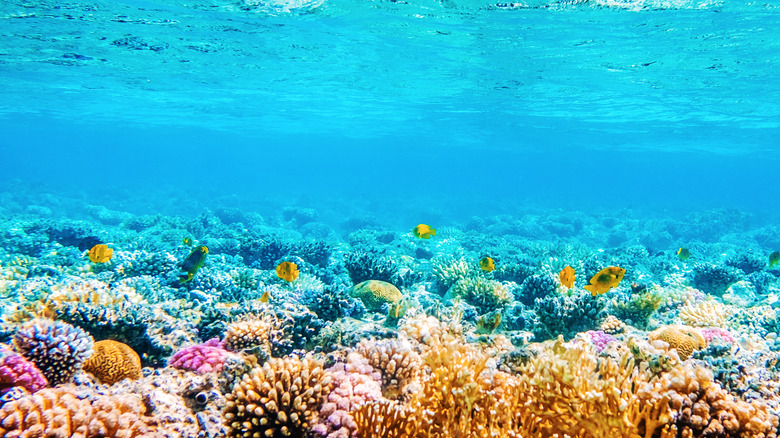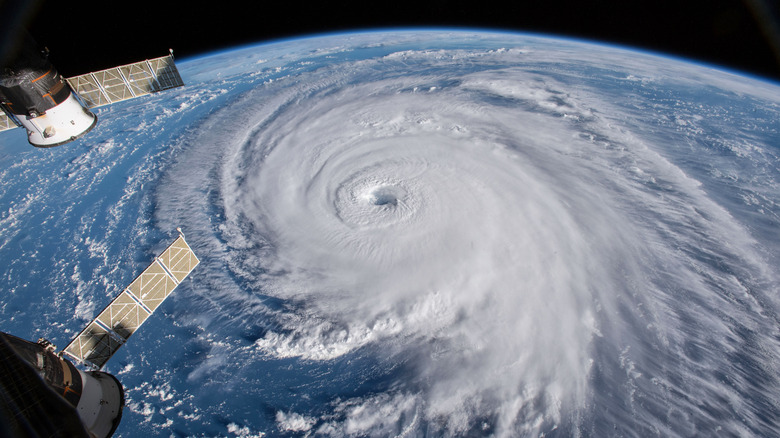Here's What Would Happen If The Oceans Were All Made Of Fresh Water
In spite of being one of the most plentiful materials in existence, hydrogen rarely has the chance to exist in liquid form. With the theoretical exception of subterranean oceans on ice worlds, Earth is the only body in the universe that is known to currently support liquid water (via Space.com). Unfortunately for most terrestrial life, only 0.5% of our planet's water is available to drink. The remaining 97% is saline, while 2.5% is fresh but frozen at the Earth's poles (via Bureau of Reclamation).
With one of humanity's most vital resources being so scarce, it begs the question: What if the amounts of salt and fresh water on Earth were flipped? Unfortunately, while the decline of fresh water levels is in need of a solution, such a drastic reversal would be apocalyptic. According to INSH, an Earth mostly covered in fresh water instead of salt water would be a chaotic world, totally incapable of supporting life as we know it.
Mass extinctions and world-ending weather could be expected of a freshwater Earth
Assuming in this scenario that all salt present in the world's oceans disappeared and no more were to be added, the ecological damage would be felt immediately. As saltwater fish are sensitive to even slight variations in salinity, sudden immersion in fresh water would lead to most ocean life dying within minutes (via Quick and Dirty Tips). This would, in turn, lead to mass starvation among all marine mammals and reptiles. Algae would die off as well, cutting the atmosphere's oxygen levels by 50% to 80% (via National Ocean Service).
These would only be the immediate effects. In time, ocean currents would no longer manage global temperatures as they currently do (via Sciencing). This would lead to a much hotter world where massive, devastating hurricanes rip across the increasingly searing surface. Earth would gradually be left as a mess, unable to create agriculture or livestock as humanity fades away alongside most other species.

